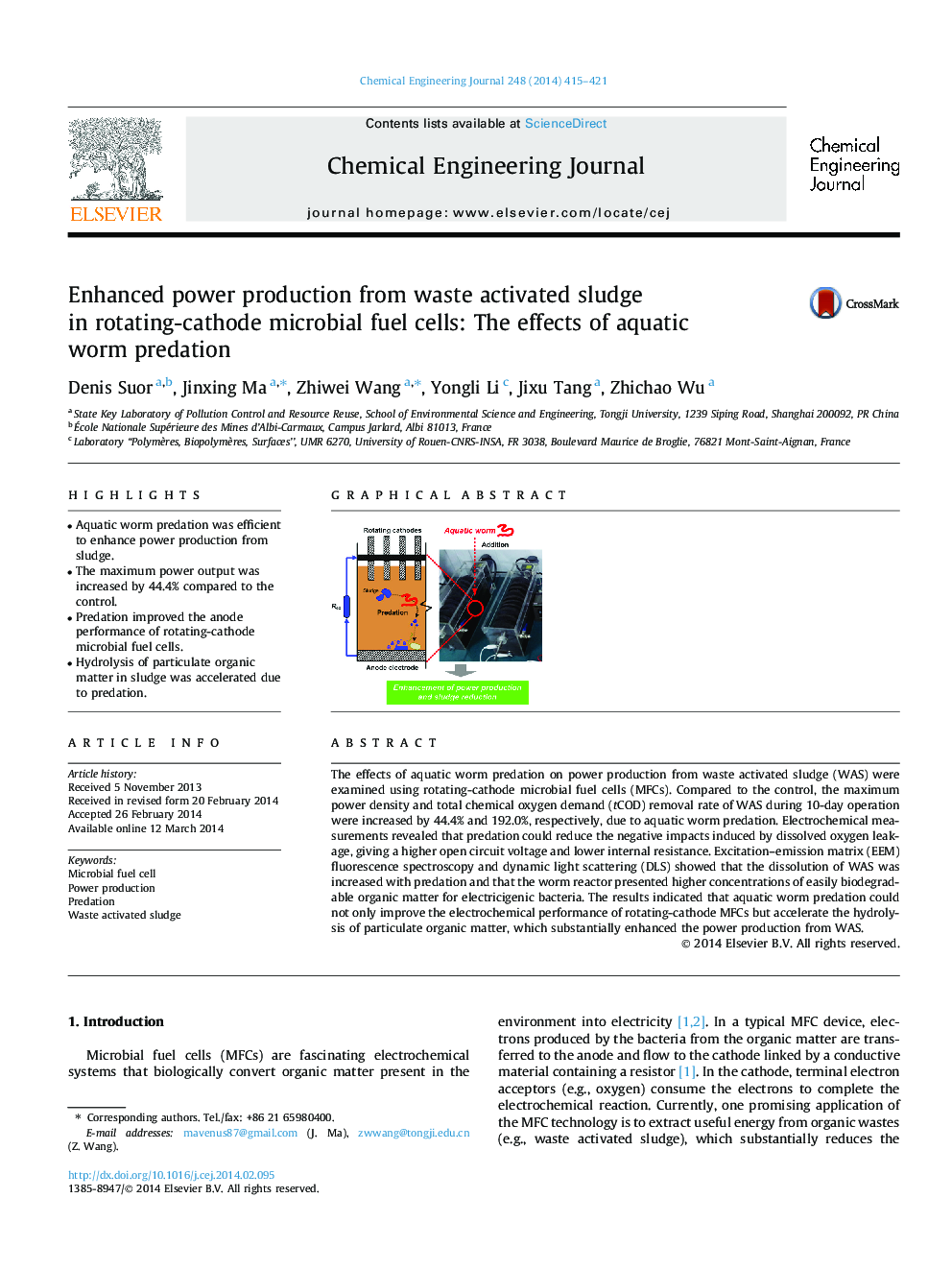| Article ID | Journal | Published Year | Pages | File Type |
|---|---|---|---|---|
| 147505 | Chemical Engineering Journal | 2014 | 7 Pages |
•Aquatic worm predation was efficient to enhance power production from sludge.•The maximum power output was increased by 44.4% compared to the control.•Predation improved the anode performance of rotating-cathode microbial fuel cells.•Hydrolysis of particulate organic matter in sludge was accelerated due to predation.
The effects of aquatic worm predation on power production from waste activated sludge (WAS) were examined using rotating-cathode microbial fuel cells (MFCs). Compared to the control, the maximum power density and total chemical oxygen demand (tCOD) removal rate of WAS during 10-day operation were increased by 44.4% and 192.0%, respectively, due to aquatic worm predation. Electrochemical measurements revealed that predation could reduce the negative impacts induced by dissolved oxygen leakage, giving a higher open circuit voltage and lower internal resistance. Excitation–emission matrix (EEM) fluorescence spectroscopy and dynamic light scattering (DLS) showed that the dissolution of WAS was increased with predation and that the worm reactor presented higher concentrations of easily biodegradable organic matter for electricigenic bacteria. The results indicated that aquatic worm predation could not only improve the electrochemical performance of rotating-cathode MFCs but accelerate the hydrolysis of particulate organic matter, which substantially enhanced the power production from WAS.
Graphical abstractFigure optionsDownload full-size imageDownload as PowerPoint slide
